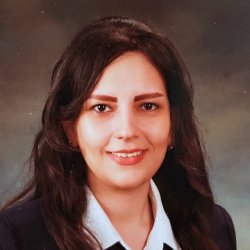
Dr Sara Dalir
Academic and research departments
Centre for Sustainability and Wellbeing in the Visitor Economy, Centre for Competitiveness of the Visitor Economy.About
My research project
The economic impact evaluation of experience-based innovation interventions—An agent-based model approachMy study advances the visitor economy literature by using complexity theory to propose a multi-agent model that unpacks the behaviour of the tourism system at regional level. It develops the conceptual agent-based model of EXPERIENCE to simulate the behaviour of the complex system under different scenarios of innovation, with and without occurrences of crisis. This study offers a practical implication by developing the EXPERIENCE model that can be utilised by destination managers, relevant local authorities, and businesses as a tool for future planning. The tool could help them to simulate the possible impacts of different innovation interventions with and without the presence of a crisis.
Supervisors
My study advances the visitor economy literature by using complexity theory to propose a multi-agent model that unpacks the behaviour of the tourism system at regional level. It develops the conceptual agent-based model of EXPERIENCE to simulate the behaviour of the complex system under different scenarios of innovation, with and without occurrences of crisis. This study offers a practical implication by developing the EXPERIENCE model that can be utilised by destination managers, relevant local authorities, and businesses as a tool for future planning. The tool could help them to simulate the possible impacts of different innovation interventions with and without the presence of a crisis.
ResearchResearch interests
Sustainable Economy, Innovation, Complex Modelling and Simulation
Research interests
Sustainable Economy, Innovation, Complex Modelling and Simulation
Publications
Highlights
- Dalir, S., Mahamadaminov, A., & Olya, H. G. (2020). Airbnb and taxation: Developing a seasonal tax system. Tourism Economics, Doi: 10.1177/1354816620904894.
- Katircioglu, S., Dalir, S., & Olya, H. G. (2016). Is a clean development mechanism project economically justified? Case study of an International Carbon Sequestration Project. Environmental Science and Pollution Research, 23(1), 504-513. Doi: 10.1007/s11356-015-5256-2.
This is a dashboard that is created with the available data gathered from multiple sources through desk research for pilot regions in my PhD research. This dashboard is created as a spreadsheet where the list of information about baseline data was stored. The spreadsheet enabled the categorisation of available data based on the source and type of data, data collection method, frequency, etc, which is helpful to identify the boundaries in the model. Conducting desk research on the available datasets, statistics and reports could be useful to evaluate the quality of available information and identify any data gap that may need to be filled. This helped with the initial planning for future data collection to measure the key model outcomes such as visitor number, expenditure, and revenue as a result of the innovation scenarios testing that was conducted for the purpose of model demonstration.
These are the codes belong to the EXPERIENCE tool that I have developed during my PhD studies. This tool is sensitive to micro-complexities existing within the dynamic system of tourism with various dimensions. It simulates the effectiveness of three experience-based innovation interventions of offering a trip-planner app, organising special events, and upgrading infrastructure in addressing seasonality and generating substantial economic benefits to a tourism destination.
This data captured using a quantitative survey on the travel habits and spending behaviours of potential visitors across different seasons. This empirical research compares the variation in several key behavioural factors including duration of stay, party size, revisit intention, spending and breakdown of spending in different sectors in hospitality and tourism including entertainment, restaurant, accommodation and transportation. Moreover, this research expands our understanding by examining the effectiveness of innovative strategies of offering a digital app and organising a unique event to tackle seasonal imbalances through stimulating visitors’ intention to change their timing of visit from peak to off-peak periods.
Additional publications
- Alipour, H., Olya, H. G., Maleki, P., & Dalir, S. (2020). Behavioral responses of 3S tourism visitors: Evidence from a Mediterranean Island destination. Tourism Management Perspectives, 33, 100624. Doi: 10.1016/j.tmp.2019.100624.
- Olya, H. G., Alipour, H., Peyravi, B., & Dalir, S. (2019). Tourism climate insurance: implications and prospects. Asia Pacific Journal of Tourism Research, 24(4), 269-280. Doi: 10.1080/10941665.2018.1564338.
- Olya, G., Alipour, H., & Dalir, S. (2014). An Entrepreneurial Tourism Project through Agro-Tourism Farm. Journal of Sustainable Development Studies, 6(1), 48-63.